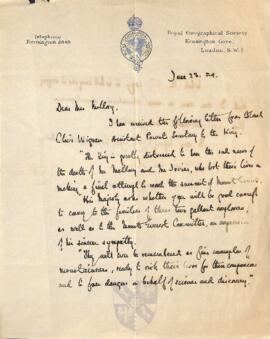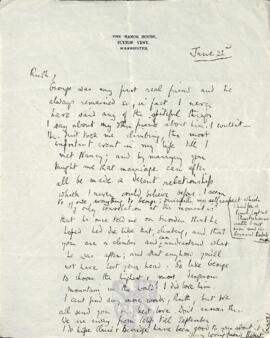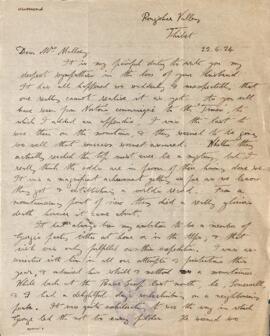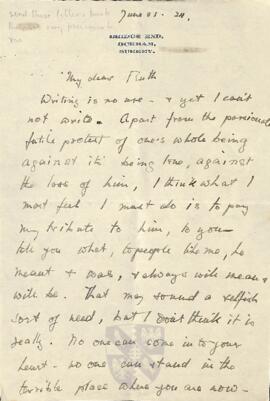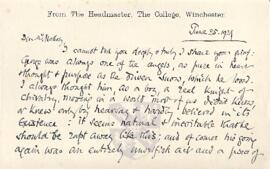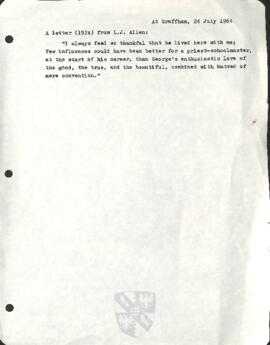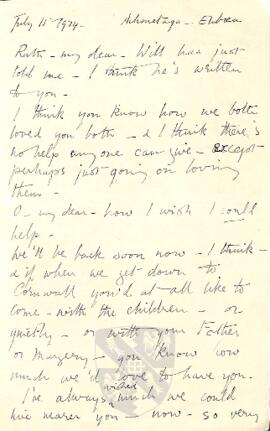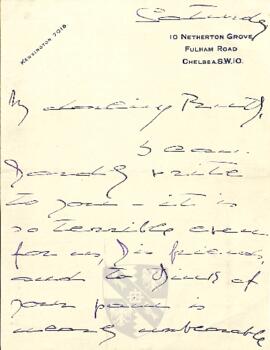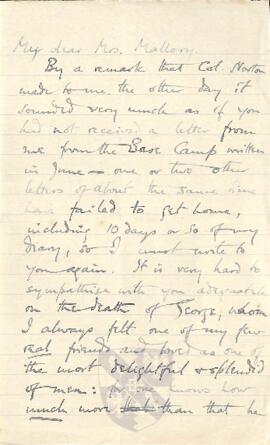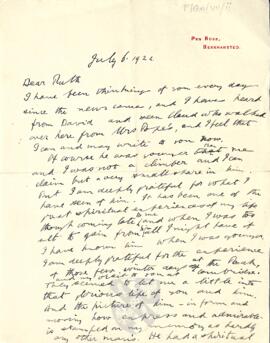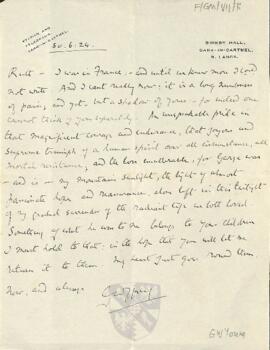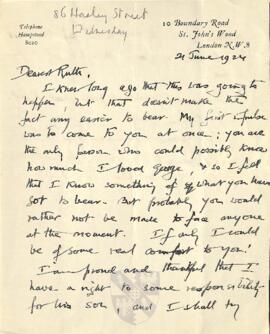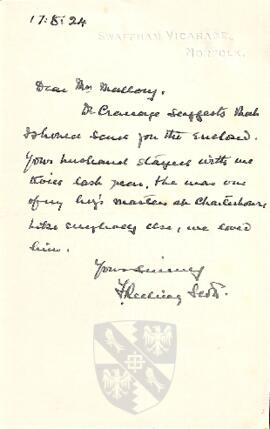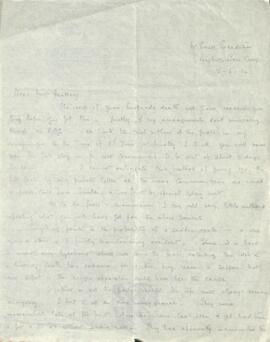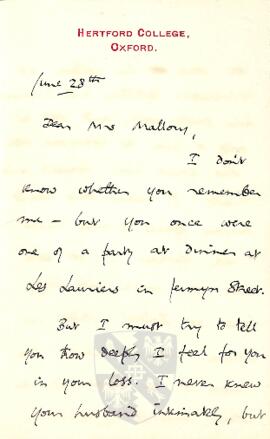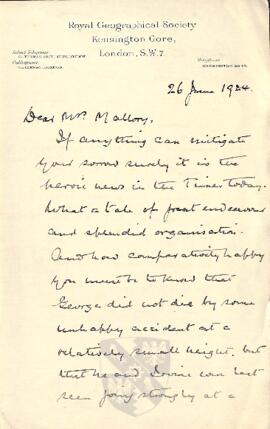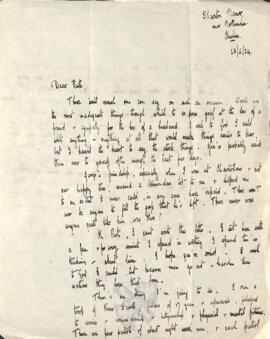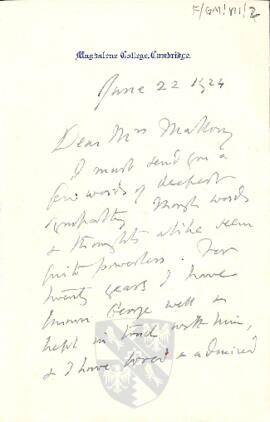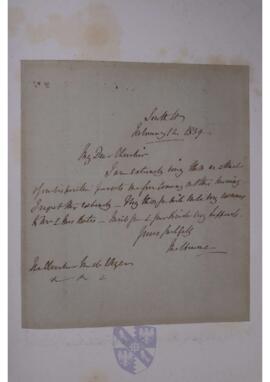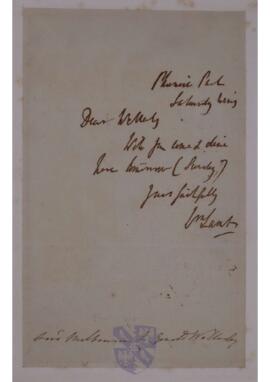Letter from Sir Francis Younghusband to Ruth Mallory on the death of her husband George on Mount Everest in which he conveys a message form King George V
alike seem quite powerless
Letter of attorney from Lady Anne Wray (widow of Sir Christopher Wray) to receive possession of a messuage, cottage, toftstead, and 25 acres of land in Saltfleet and Skidbrooke.
Parties: (1) Russell Hallack to (2) Stephen Adcock and Frederic Poland Adcock
Attested copy
Letter of attorney from Magdalene College to Robert Sawyer to receive the rents etc of the Manor of Alkborough.
Letter of attorney from Magdalene College to Thomas Spademan to receive the rents etc of the Manor of Alkborough.
Parties:(1) John Dison and Elizabeth his wife (2) Jacob Smith
Letter of Attorney to sell estate and secure rents etc [in relation to Copped Hall].
Letter of attorney from Samuel Knightbridge to Robert Smith and Andrew Gedney to deliver possession to John Spendluffe of another 9th part of the Manor and parsonage purchased by him of Edward Knightbridge. Livery of seisin endorsed.
Letter of attorney from Arthur Hall to Robert Qwersby and Robert Smyth to deliver possession to John Spendluffe. Livery of seisin endorsed.
Letter from John Sivan of the firm Messrs S & W Peed & Turner (Auctioneers, Land and Estate Agents) giving a valuation of the property belonging to Charles Collin Warren - "a substantial built brick and slate house and shop No. 17 Magdalene Street Cambridge with Warehouse in yard". The value was given as £1200.
Autograph letter addressed from "32 St. James Place", signed, to Thomas Cadell and William Davies, partners of the British publishing and bookselling firm, Cadell & Davies. He requests copies of A Practical View [of Christianity], handsomely bound, to give as gifts.
Van de Weyer, Jean Sylvain (1802-1874), diplomatAutograph letter addressed from "Trinity College Cambridge", signed, to Jean Sylvain Van de Weyer, regarding a letter on tides by M. Quetelet and whether Van de Weyer can further any suggestions it contains. He invites Van de Weyer to Cambridge to “see something of an English University”.
Van de Weyer, Jean Sylvain (1802-1874), diplomatAutograph letter addressed from "Southall", signed, to Jean Sylvain Van de Weyer wishing him and his bride happiness for their forthcoming marriage, and the parents of the bride, Mr and Mrs Bates.
Van de Weyer, Jean Sylvain (1802-1874), diplomatAutograph letter, signed, to Gerald Wellesley. Lamb invites Wellesley to dine with him the next day.
An MS annotation at the foot of the letter reads: “Lord Melbourne to Gerald Wellesley”.
